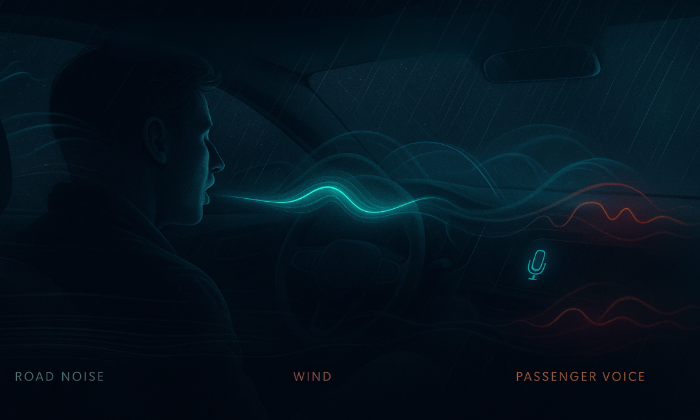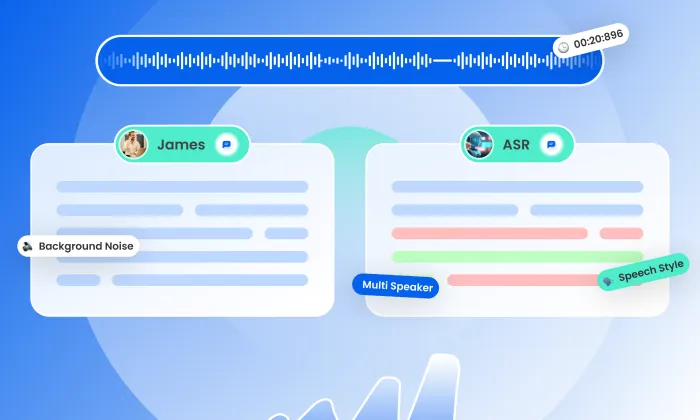What is speaker adaptation and how does it use voice cloning datasets?
Voice Cloning
Speech Recognition
Speaker Adaptation
Speaker adaptation is a technique used in voice cloning and speech synthesis to tailor the output of a synthetic voice model to reflect the unique characteristics of an individual speaker. This process enhances the authenticity and personal touch of the generated speech, making it more suitable for applications such as virtual assistants, audiobooks, and gaming characters.
Key Benefits of Speaker Adaptation
- Personalization in AI Voice: Adapting synthetic voices to individual preferences enhances user engagement by making interactions feel more personal and relatable. For instance, an e-learning platform with voices that match a learner's tone can create a more immersive and effective educational experience.
- Diversity and Inclusivity: Speaker adaptation promotes inclusivity by incorporating a variety of accents, genders, and age groups into voice technologies. This diversity is especially important in multilingual environments, where users prefer voices that reflect their cultural backgrounds.
- Enhanced User Interaction: In customer service, adaptive voice systems can increase user satisfaction by adjusting tone and inflections based on context, such as being formal during complaints and casual during general inquiries.
Process of Speaker Adaptation
- Data Collection: High-quality audio recordings are gathered from a diverse set of speakers, covering various emotional tones, accents, and demographics. FutureBeeAI specializes in providing such datasets, ensuring they are ethically sourced and recorded in professional studio environments.
- Model Training: Machine learning models, such as those based on WaveNet or Tacotron architectures, are trained using these datasets. This often involves transfer learning, where a pre-trained model is fine-tuned with specific voice data to adapt to new speaker characteristics.
- Quality Assurance: After training, the adapted model undergoes rigorous quality checks. This involves comparing the synthesized voice outputs with original recordings to ensure they accurately replicate the target speaker's voice.
Challenges in Speaker Adaptation
- Data Requirements: Successful speaker adaptation requires a substantial amount of high-quality, annotated voice data. FutureBeeAI provides scalable solutions by connecting AI teams with verified voice contributors, ensuring diverse, high-quality data that complies with ethical standards.
- Computational Resources: Adapting models can be computationally intensive. Utilizing efficient algorithms and cloud-based resources can mitigate this challenge, enabling more streamlined adaptation processes.
- Balancing Generalization and Specificity: Models need to be fine-tuned to reflect a specific speaker’s voice while maintaining the ability to generalize across multiple voices. Striking this balance is essential to ensure versatility without sacrificing voice quality.
Common Pitfalls in Speaker Adaptation
- Lack of Data Diversity: Focusing too narrowly on a specific type of speaker can lead to less robust synthetic voices. Ensuring a wide range of speaker attributes, as supported by FutureBeeAI, can prevent this issue and create a more versatile voice model.
- Inadequate Quality Control: Skipping thorough quality assurance processes can result in synthetic voices that fail to meet user expectations. Implementing multi-layered human quality checks, as done by FutureBeeAI, ensures high-quality outputs.
- Ignoring User Feedback: Not incorporating end-user feedback can lead to voices that do not resonate with the target audience. Regular feedback loops can help refine the adaptation process and enhance the overall user experience.
Real-World Applications
Speaker adaptation has numerous real-world use cases, including:
- Virtual Assistants: Personalizing voice outputs to match user preferences improves the quality of interactions and boosts user satisfaction.
- Audiobooks and Storytelling: Adapting voices to fit different narrative styles or characters significantly enriches listener engagement and immersion.
- Gaming Characters: Customizing character voices to reflect diverse personas enhances the gaming experience, making it more dynamic and relatable.
For AI projects requiring customized voice cloning datasets, FutureBeeAI delivers high-quality, production-ready data within just a few weeks, ensuring an ethical and scalable solution for all voice technology needs.
Smart FAQs
Q. What constitutes a high-quality voice cloning dataset?
A. A high-quality dataset includes diverse recordings from speakers with varying emotional tones, accents, and speech contexts. The recordings must be ethically sourced and created in professional environments to ensure clarity, richness, and high fidelity.
Q. How can organizations overcome the challenges of speaker adaptation?
A. Organizations can overcome challenges by partnering with data providers like FutureBeeAI, which offer comprehensive, diverse datasets and robust quality assurance processes. Leveraging cloud-based computational resources and efficient adaptation algorithms also helps streamline the process.
What Else Do People Ask?
Related AI Articles
Browse Matching Datasets
Acquiring high-quality AI datasets has never been easier!!!
Get in touch with our AI data expert now!








